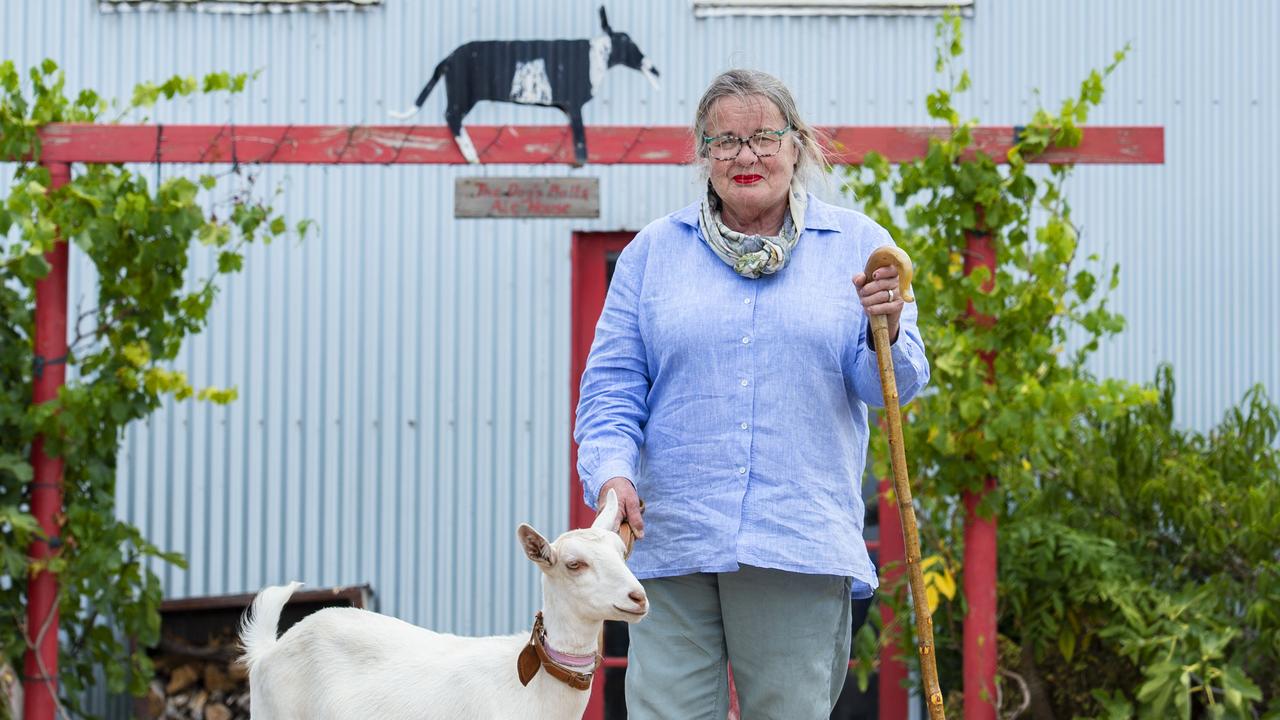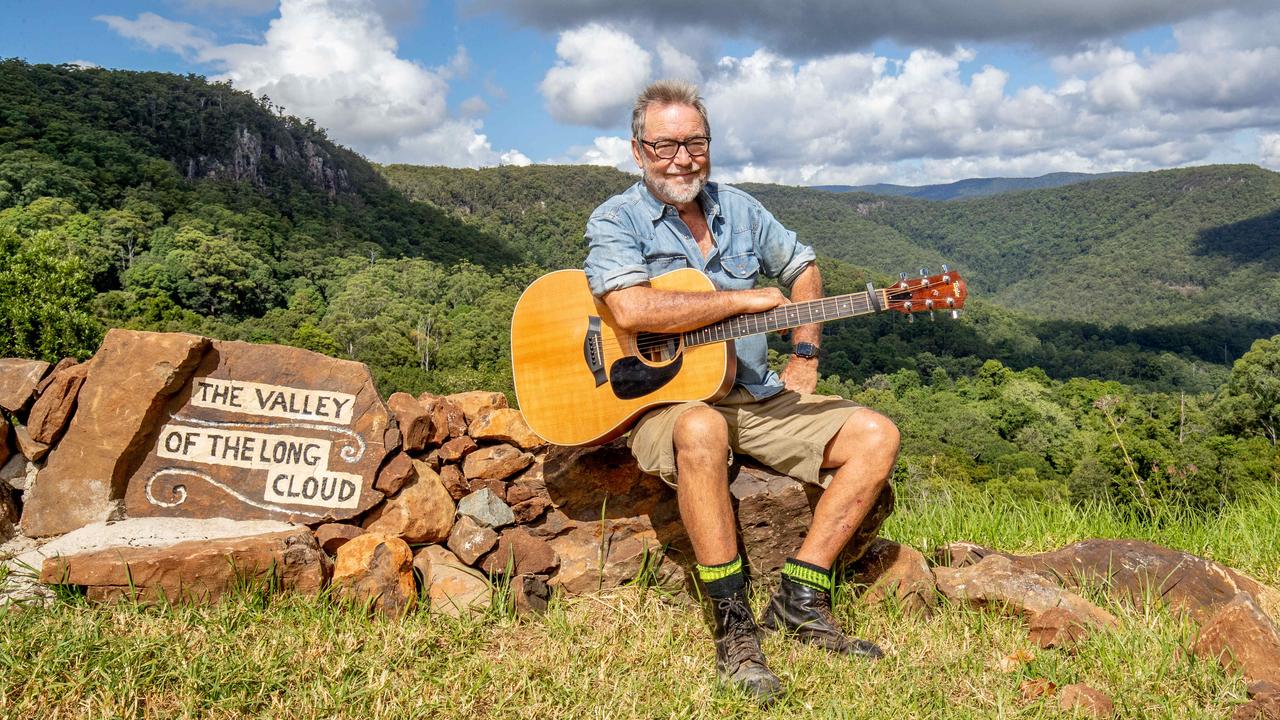Miranda: Victorian couple join carbon farming initiative
The challenge for this couple was to take an overworked piece of land and bring it back to life, writes Genevieve Barlow.
SOME days I wonder if I would have made it as a farmer. Would I have had the tenacity, the capacity to endure rugged times, and — or even more importantly — the devotion and the genuine, deep interest that’s needed for the vocation, or calling, that farming is?
And as we move into longer, drier, hotter periods, it’s going to take more than devotion to keep farmers going.
They’re going to need a lot of smarts. But what sort of smarts?
MORE
LAND REGENERATION IS A CARBON CLICK AWAY
Are we headed towards farming in artificial environments, largely away from the vicissitudes of climate, where everything is produced in greenhouses under tightly controlled conditions?
Or is there another, possibly more demanding way, where we begin to reverse the damage that’s been done to soils and by doing so create the ground that can hold moisture for longer and will produce the sort of tasty, soil-grown organic food that we once knew. (We occasionally still do if we’re lucky and prepared to pay more.)
Deane and Maree Belfield are opting for the latter.
In their mid-50s after careers elsewhere, they bought a small farm at Muckleford, near Maldon in central Victoria, six years ago.
Tougher country is hard to find.
Cleared hard of trees, their 182ha of land on the edge of box ironbark forest has at various stages grown vegetables, been cropped and was grazed for milk production.
“It’s been pretty much flogged,” Deane says.
So why buy it? Why take on such a challenge to turn around an overworked farm, especially when you want to grow soil-grown garlic and pumpkins as well as beef, and especially when most people your age are looking at slowing down, putting their feet up and heading off on a cruise or an endless round of coffees?
“We’ve always wanted to do this and we just hadn’t been able to do it until now,” says Maree. “And what else would you do? Sit around drinking coffee and gossiping? That’s not for us.”
The Belfields are out to prove a point, to show that you can turn around buggered up country and build up the soil so it will hold more moisture and therefore more life.
Their farm is Victoria’s first registered soil carbon project under the Federal Government’s carbon farming initiative which, according to Deane, includes up to 30 types of farming, from farm forestry to tapping methane in landfill.
Their aim is to build the soil carbon or the soil life — the things that make it productive, such as worms and fungi and bacteria.
You can build up carbon use any number of ways: by never letting your soil be bare and grazing grass intensively and then resting it; by nurturing plants that establish deep roots; by mulching; by shaping it and creating keylines so rain when it comes flows gently, rather than rushes across the land, and therefore soaks in; by sowing crops into stubble so that your topsoil never blows away in the wind; by adding something called biochar (look it up).
The Belfields are doing most of these things, plus adding bacteria-rich biodynamic feeds. Lately they brought in 1000 dung beetles, which have an astounding capacity to take dung deep into the soil.
“The challenge here is to heal the soil in the landscape,” says Deane.
They’re a great pair for this challenge. City-raised Maree’s childhood exposure to farming was on skiing tips to Mt Buller with her German born-father but she always wanted to live on a farm. Deane, an electrical engineer in his early working years, breathed country air from day one, growing up north of Harrow on his parents’ farm.
He loved the place, especially for the trees that grew there. When he returned after the family had sold it to find the trees gone, he was devastated and angry.
The impact was profound. It drove him back to study, this time a Masters in Environmental Science. Thus began a different journey that ultimately took him around the world advising large businesses how to reduce their carbon footprint.
Today he runs his own business, preferring to work with small to medium businesses on reducing their carbon footprint and building carbon neutrality. He talks circular economy and runs programs that helps businesses cut the waste they produce and to find ways to re-use it.
On their farm — which they call their living laboratory — the Belfields run Hereford cattle, about 25 cows and the same number of calves. They say it’s enough for the country, which they strip graze creating 8.1ha lots with 7.5km of electric fences. Each section is rested for up to 120 days between grazings.
They’ve marked out a place where they’ll grow vegetables, keep bees and plant further trees. (An underground bunker signals their pragmatic approach to the possibility of fire.)
They’re a key part of the Mount Alexander Regen Ag support group in their area. It has 25 or so members, half of whom are also getting their soil tested perhaps with a view to becoming registered carbon projects. Some are new to farming, some are long timers keen to find out more.
What I found inspiring was the Belfields’ optimism, and their motivation to get in and reverse the damage of past centuries.
Some people diss the term regenerative agriculture, saying this is what farmers have been doing anyway.
But if that were the case would our land need the remediation that’s so obvious?


